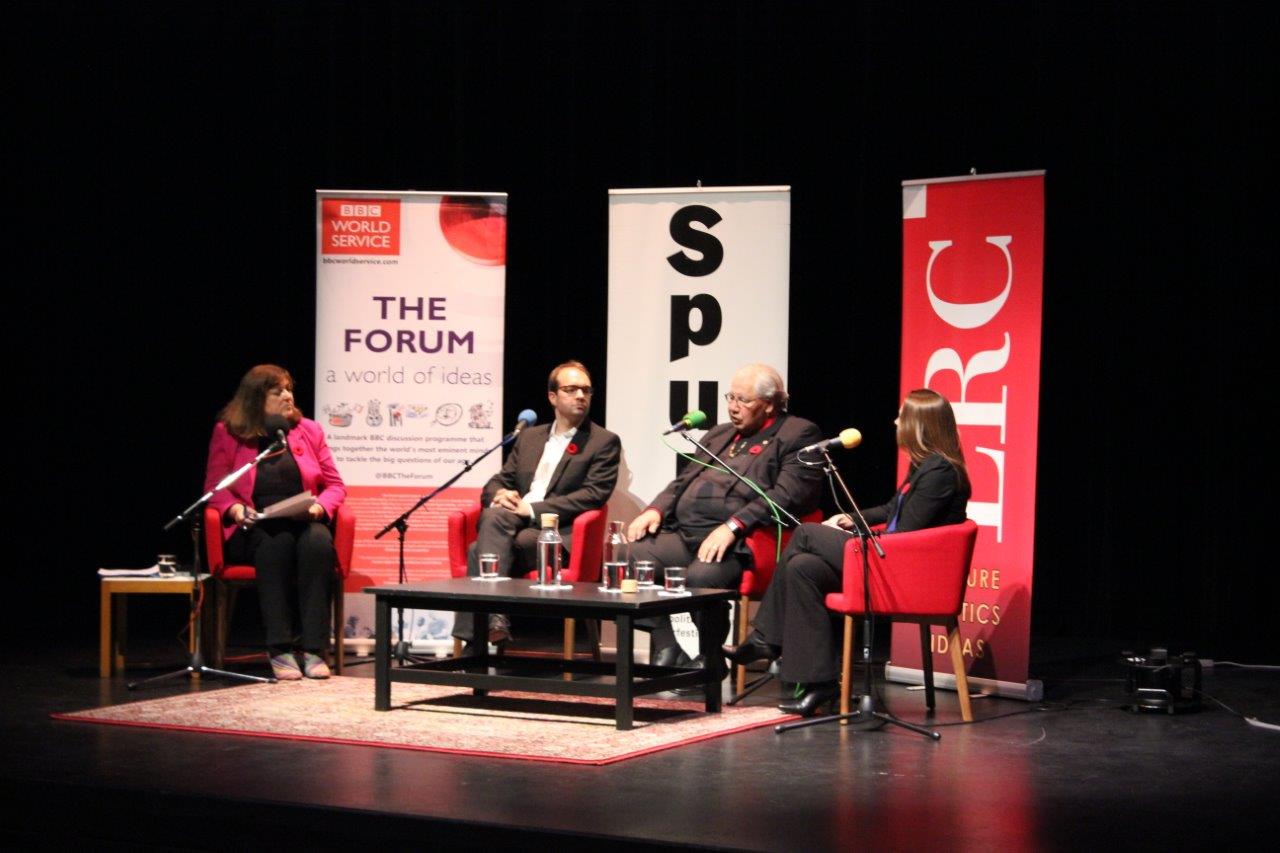rabble is expanding our Parliamentary Bureau and we need your help! Support us on Patreon today!
The recent Canadian federal election that thrust Justin Trudeau and the Liberals into power was, depending upon your point of view, either a happy day or an exercise in the politics of resentment. For many people who I have encountered since October 19 it is as if a dark cloud has passed or a weight has been lifted from their shoulders.
Barry Cooper and resentment
I will provide more detail on that sentiment below but first let’s hear from those who feel otherwise. One assumes that the 32 per cent of voters who supported the Conservatives were sorry to see their party lose but few of them have been as surly about it as Barry Cooper, a professor at the University of Calgary. He and some of his colleagues there have served as a kind of a Reform-Alliance-Conservative brain trust for the past 30 years. Writing in the Calgary Herald Cooper blamed the Conservatives’ loss on “the politics of resentment” — but who are these resentful people?
Laurentian elites
Cooper’s list of offenders begins with the “Laurentian elites” in Toronto and Southern Ontario, extends to the “tribal” voters in Quebec and to those possessors of the “loser ethos” in Atlantic Canada. Cooper provides some added context regarding the ungrateful Maritimers. “In Atlantic Canada, [the Conservatives] reduced citizens’ dependence on pogey,” Cooper writes. “Thus, the red wave began in the part of the country most addicted to chunky-style pork barrelling.”
“Disempowered and miserable”
Cooper also adds Indigenous people to the nefarious Liberal support group. “The third element in the resentment coalition,” he says, “was provided by the most disempowered and miserable sub-population in Canadian society, the First Nations. The Conservatives thought greed and poverty were connected, so they passed the First Nations Financial Transparency Act. The clan bosses, now styled as grand chiefs, hated it.”
Disempowered and miserable! For a moment there I thought Cooper might be describing Mike Duffy, Bruce Carson and Dean Del Mastro.
According to Cooper the only voters who avoided the politics of resentment were those who remained (for the most part) Conservative — “the productive Prairies and eastern B.C., along with southwestern Ontario.”
Change for the better
By way of contrast, here is part of what I have seen and heard. I attended four events last week in Ottawa at the SPUR Festival, which organized a variety of panels on foreign and defence policy, reconciliation, climate change, and food insecurity in Canada. On each occasion, at least one member of a panel or of the audience remarked upon the change of government, expressing hope and even guarded optimism that some important things will now change for the better.
TRC, climate change, peacekeeping
Justice Murray Sinclair, who headed the Truth and Reconciliation Commission, talked about how slow and difficult it has been for many Canadians — including governments — to come to terms with their relationships to Indigenous people. He was asked by a member of the audience if there is more hope of progress now that Justin Trudeau is prime minister. Judge Sinclair said this: “The new government said during the campaign that it would change the nature of the relationship and the conversation and I am hopeful about the people that he appointed [to the cabinet].” He added, however: “It is going to take a long time to achieve mutual respect and for young Indigenous people to gain self-respect.”
One of the participants in a panel on climate change proffered the hope that with a new government there might be more significant action on that issue. Another of the festival events dealt with a new book about the role played by former Prime Minister Lester B. Pearson in the Suez crisis of 1956. An audience member asked if Canada might regain a renewed role as a peacekeeping nation now that we have a new government. The author said he was hopeful that it might happen.
Give them a chance
I am not a Liberal but I must admit that following the election there is a feeling of freshness and possibility in the air. The Liberals may all too soon slip back into the old habits of arrogance and entitlements that characterized so much of their long reign as the governing party, but this is mostly a new and younger group. Let’s give them a chance to show what they can do.
Petty and cruel
Barry Cooper’s comments — petty, dismissive and cruel — personify what a clear majority of Canadians dislike about Stephen Harper and the Conservatives. Cooper may well protest that my observations don’t count for much since I live in Ottawa and must therefore be a member of the Laurentian elite — and I do live across the river from those tribal voters in Quebec. Cooper, on the other hand, is just an ordinary guy who happens to be a tenured professor at the University of Calgary. I can only say from my elite perch that I was raised in rural Saskatchewan, that I spent more than 40 years of my life in the “productive prairies” — and that I am much fonder of Alberta than Cooper appears to be of Ontario.
rabble is expanding our Parliamentary Bureau and we need your help! Support us on Patreon today!




